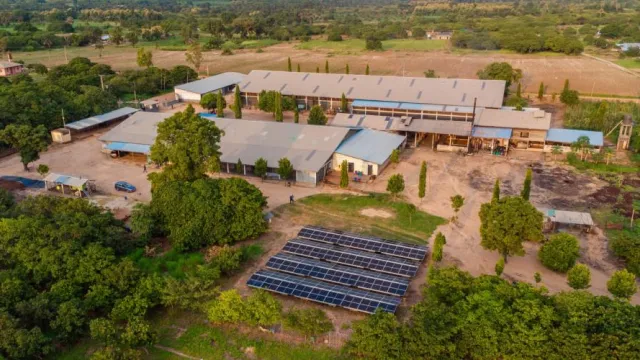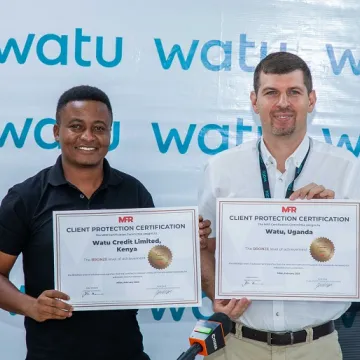Kenya and EU in push to speed up shift to clean energy future

The European Union, through Global Gateway, early-stage clean energy companies in Kenya are reaching remote communities with off-grid systems, such as solar-powered kits, mini-grids and small hydropower projects. (Photo/2025 European Union. All rights reserved)
Sleek electric bikes are fast replacing noisy and ubiquitous 'nduthi' (bodabodas) across Nairobi and nearby urban areas, transforming shopping runs, deliveries, and school drop-offs into eco-friendly rides that boost family incomes and Kenya’s shift to green mobility.
With stable electric energy, players in the mobility sector can now plan their routes with more certainty, and manage their enterprises without worrying about the impact of high fuel prices.
Unknown to many, however, one of the engines behind this green transition is an ongoing collaboration between Kenya and the European Union (EU) that seeks to yield a more prosperous and sustainable future for all.
“The transition to renewable energy is not just about reducing carbon emissions; it’s about creating a more sustainable future for the people, the planet, and local economies," said Henriette Geiger, EU Ambassador to Kenya at a ceremony to launch I’ve Got the Power campaign in the country.
"Through this campaign [I’ve Got the Power], we want people to not only understand the importance of sustainable energy but also, to realise how this transition can positively impact their lives and future,” explained Ambassador Geiger.
According to the two main stakeholders, I’ve Got the Power campaign focuses on the shared commitment between the EU and Kenya to accelerate the shift to accessible, reliable clean energy in the East African country.
At the moment, a number of EU-supported energy initiatives in Kenya aim to provide renewable energy solutions to both individuals and local communities.
For instance, the EU’s Global Gateway investment strategy has been implementing the Last Mile Connectivity Programme, effectively expanding electricity access in rural Kenya by connecting households located near distribution transformers to the national grid.
By delivering reliable, cleaner power to families, schools and small businesses across 32 counties, the Last Mile Connectivity Programme supports Kenya’s universal electrification goals and reduces dependence fossil fuels.
Additionally, it plays a vital role in advancing the country’s clean energy transition while improving health, education and economic opportunities in underserved communities.
Local talent
Under the EU-Kenya partnership, an increasing number of real-life success stories continue highlight how access renewable energy is not only supporting environmental goals but also enhances public safety, drives enterprise and nurtures local talent.
Take for instance fashion designer Austin. For him, the impact is personal. Through access to reliable electricity, his workshop now runs without persistent power outages, thereby enabling him to meet client demands and enhance his enterprise.
In a ssimilar move, an electric boda boda rider Catheline, now uses an e-bike to run her door-to-door delivery outfit, positioning her to earn a stable income without worry to high fuel prices.
Under the leadership of European Commission President Ursula von der Leyen and South African President Cyril Ramaphosa, who are steering the Scaling up Renewables in Africa pledging drive, Kenya continues to shine bright with progress across Africa.
Overall, the Scaling up Renewables in Africa pledging campaign, which is delivered through the EU’s Global Gateway, aims to speed up access to clean, reliable power while opening opportunities for green jobs.
Statistics show that the number of electric bikes on Kenyan roads increased by roughly 108 percent to over 4,800 units in 2024 compared to a year earlier. Currently, electric bike providers eBee, Spiro, Watu, and Roam are driving this surge even as the government projects that there will be 200,000 e-bikes by the end of 2025.





